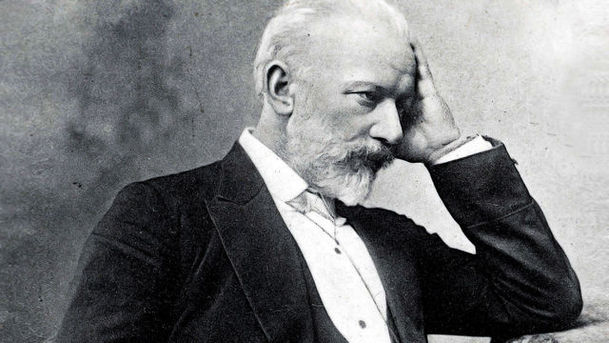Composer of the Week - Pyotr Ilyich Tchaikovsky (1840-1893) - Episode 1

Donald Macleod investigates a little-known 'lost decade' in the middle of Tchaikovsky's life, a period the composer spent aimlessly wandering around Europe writing songs, chamber works and even religious choral music, as he struggled to come to terms with his sexuality - and his calling as a musician. In 1878, Tchaikovsky was at the pinnacle of the early part of his career. Over the previous few years, masterpiece after masterpiece had flowed from his pen - including the masterful violin concerto, Fourth Symphony and opera "Eugene Onegin". Yet.just as he seemed poised to capitalise on this tremendous success, his world fell apart. Following a sham marriage to a crazed fan - which he had hastily agreed to in the hope of hiding his own homosexuality - Tchaikovsky fled his home, escaped the life he had so carefully established, and wandered as a lost soul around Europe. For the next decade he would compose nothing in the genres that had made him famous - no ballets, no symphonies (at least none in the conventional sense) - indeed, almost nothing that's regularly played in the concert hall today. Instead, Tchaikovsky embarked on a little-performed series of songs, piano and chamber works - even dabbling with the genres of oratorio and mass. He also made a series of bold experiments in form - writing a set of genre-defying orchestral suites, concertante works for soloist and orchestra, and his only programme symphony - 'Manfred' - a work that was to cause him more anguish than any other work. Yet.on the other hand were written two of Tchaikovsky's most popular - yet much-derided - orchestral 'lollipops'- the Overture "1812" and Capriccio Italien. In 1888, after a decade of wandering, Tchaikovsky was to return to Russia and embark on his late series of great works - "Sleeping Beauty", "The Nutcracker", and the Fifth and Sixth Symphonies. This week though, Donald Macleod makes a rare excursion into the rich rarities of this lost decade. We begin the week with the works that followed in the aftermath of the composer's disastrous marriage, including charming, childlike works for violin and piano solo, and one of Tchaikovsky's least known major works - his choral setting of the Liturgy of St John Chrysostom.